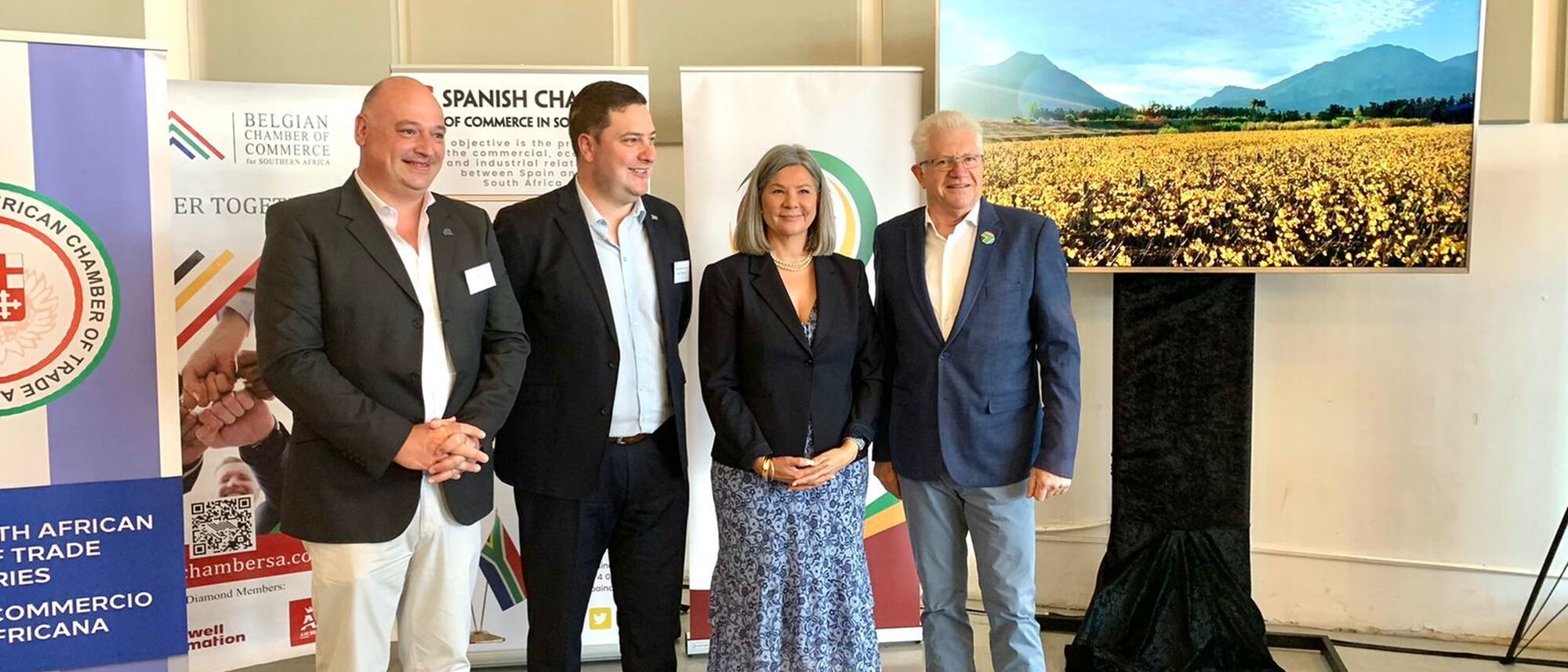The EU is SA’s largest trading partner and its biggest source of foreign direct investment, with more than 1,000 European companies active in SA, and collectively responsible for 350, 000 jobs.
Trade relations between the European Union (EU) and the Western Cape are set to strengthen as the demand for renewable energy surges, delegates attending the Wesgro and EU Chamber trade and investment breakfast heard on Monday.
The breakfast was attended by key stakeholders including European investors active in SA.
The Western Cape provincial government has been pushing to position the province as the lowest carbon region in SA and the leading green economic hub. The need to attract more investment into green energy has become more urgent as the country battles its worst ever electricity crisis, which is seen as the biggest threat to the economy.
“The crisis, however, has most certainly been the catalyst for innovation,” Wrenelle Stander, the CEO of Wesgro, told delegates.
“Right now, we are seeing unique, multi-year opportunities emerging right here in our province driven by international shifts to clean energy; geopolitics; the loadshedding crisis in South Africa; and importantly, policy reforms in the energy space in South Africa,” Stander said.
The EU is SA’s largest trading partner and its biggest source of foreign direct investment (FDI), with more than 1,000 European companies active in SA, and collectively responsible for 350 000 jobs.
Brussels is a global leader in the green transition and was one of the first regions to commit to achieving a just transition away from fossil fuels. As one of the key international partners in SA’s Just Energy Transition Partnership (JETP), the EU intends to contribute about $1bn of the total $8.5bn funding package needed to accelerate SA’s decarbonisation drive and transition away from coal towards cleaner forms of energy.
SA’s energy crisis
has triggered unprecedented momentum behind renewables.
“The EU has invested more into renewable energy in the Western Cape than into any other sector. With recent policy shifts to open the energy market to private investment, investment into clean energy technologies is expected to increase exponentially. This, in turn, of course, supports the achievement of much needed energy security,” Stander said.
She highlighted that the Western Cape provincial government put in place the building blocks to encourage investment into a greener economy more than a decade ago.
Speaking at the same event, Cape Town Mayor, Geordin Hill-Lewis, emphasised that the role of government is to create a conducive environment necessary to attract investment and for businesses to thrive. The city is pulling out all the stops to boost energy security, including paying businesses and residents a feed-in tariff for supplying excess electricity to the local grid, Hill-Lewis said.
The EU’s ambassador to SA, Her Excellency Sandra Kramer, said the bilateral relations binding the EU with SA have maintained a strong growth momentum in recent years.
“Of course, the situation could be even better, with more investments and more job creation, specifically in the green and digital areas that have now become the focus of the world transition towards a greener and digital economy…with more policy certainty, a smoother visa regime, security and – above all – access to reliable, resilient and sustainable energy,” Kramer said.
Western Cape MEC for Finance and Economic Opportunities, Mireille Wenger, said the province and the EU have a long and proud history of collaboration borne out by the impressive economic, trade, investment, and tourism ties.
The Western Cape has a strong economic relationship with the EU accounting for 34.15% of inward foreign direct investment projects into the province in 2022. In 2021, the Western Cape’s exports to the EU increased by 13.24%, from R30.53bn recorded in 2020 to R34.57bn in 2021. Similarly, imports increased from R34.96bn in 2020 to R46.49bn in 2021.
“We are also proud to be a destination of choice for travellers from Europe, with 7 out of the top 10 source markets to Cape Town originating from the continent. I look forward to building on and strengthening our relations, as we work together on our strategic priorities, to ensure that we continue to improve the lives of our peoples,” Wenger said.
Western Cape Premier, Alan Winde, said boosting energy security is a crucial to attract more investment into the province. He said, however, the crisis presents an opportunity to accelerate green growth.
“What is this province? The Cape of Good Hope. The Western Cape is South Africa’s province of hope. What does it mean for business? Businesses are not only looking at the city, but beyond. The whole province is full of opportunity. The energy crisis presents great opportunity [to attract more investment in green energy],” the Premier said.
